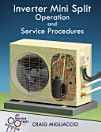Civil Engineering Contractual Procedures
জুন ২০১৪ · Routledge
ই-বুক
316
পৃষ্ঠা
family_home
উপযুক্ত
info
reportরেটিং ও রিভিউ যাচাই করা হয়নি আরও জানুন
এই ই-বুকের বিষয়ে
Civil Engineering Contractual Procedures gives an introduction to the contractual procedures, legislation and administrative practices that are used in the civil engineering industry. It introduces the principles of contract law, and the main forms of contract used in the construction industry. It then concentrates on the main forms of contract used in civil engineering, with the discussion based on the ICE Conditions of Contract. It looks at the obligations of the various parties to the contract under all the clauses of the contract.
Civil Engineering Contractual Procedures provides a sound basis for anyone seeking an understanding of the contractual administration of civil engineering projects. It is an essential core text for all students of civil engineering and related courses at both undergraduate and higher technician levels. It will also be a useful reference source for those already working in the industry.
Civil Engineering Contractual Procedures provides a sound basis for anyone seeking an understanding of the contractual administration of civil engineering projects. It is an essential core text for all students of civil engineering and related courses at both undergraduate and higher technician levels. It will also be a useful reference source for those already working in the industry.
লেখক সম্পর্কে
Allan Ashworth was formerly Head of the Division of Surveying at Nene College of Higher Education, Northampton, and Lecturer and Course Director for Quantity Surveying at the University of Salford. He is now a consultant for the Quality Assessment Agency.
ই-বুকে রেটিং দিন
আপনার মতামত জানান।
পঠন তথ্য
স্মার্টফোন এবং ট্যাবলেট
Android এবং iPad/iPhone এর জন্য Google Play বই অ্যাপ ইনস্টল করুন। এটি আপনার অ্যাকাউন্টের সাথে অটোমেটিক সিঙ্ক হয় ও আপনি অনলাইন বা অফলাইন যাই থাকুন না কেন আপনাকে পড়তে দেয়।
ল্যাপটপ ও কম্পিউটার
Google Play থেকে কেনা অডিওবুক আপনি কম্পিউটারের ওয়েব ব্রাউজারে শুনতে পারেন।
eReader এবং অন্যান্য ডিভাইস
Kobo eReaders-এর মতো e-ink ডিভাইসে পড়তে, আপনাকে একটি ফাইল ডাউনলোড ও আপনার ডিভাইসে ট্রান্সফার করতে হবে। ব্যবহারকারীর উদ্দেশ্যে তৈরি সহায়তা কেন্দ্রতে দেওয়া নির্দেশাবলী অনুসরণ করে যেসব eReader-এ ফাইল পড়া যাবে সেখানে ট্রান্সফার করুন।






